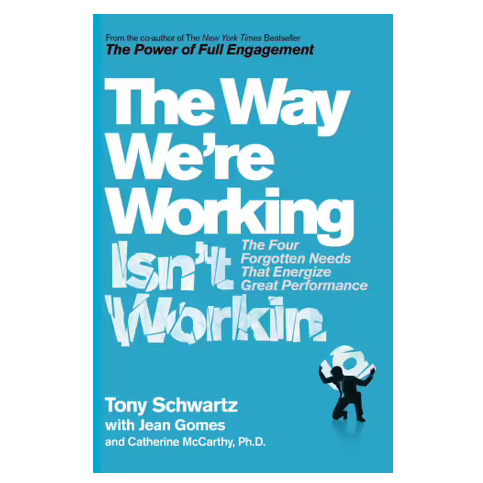Three Coaching Tips for the current Challenges of Leadership
The Art of Leadership Newsletter
It seems like we are breathing a collective sigh of relief here in Australia as locally transmitted cases of COVID-19 hover around zero. In this part of the world at least, businesses have good reason to feel more optimistic. Nonetheless, many of the challenges of leadership that have emerged from the pandemic are still in play. In this week’s blog we explore what some of these challenges are from the viewpoint of leading people and how to use the art and science of coaching to deal with them.
Regards,
Virginia
Three Coaching Tips for the current Challenges of Leadership
Despite the level of relative normality that we are experiencing in this part of the world, it is hard to lose sight of the fact that we are in the middle of a crisis. And crises are crises because they affect people. From the viewpoint of leadership, the global pandemic has brought into sharp focus that leadership right now is about leading people who are being impacted, at different levels, and to varying degrees, by a global health crisis.
Since the start of the pandemic these shifting sands of normal have given rise to a new set of leadership challenges. To get a sense of what has been changing, we carried out a study involving our coaches and mentors – themselves Board members, former senior executives and psychologists – to identify and qualify some of the top challenges for the senior people-leaders that they are working with. The results, which represent insights from across 350 coaching engagements, are displayed below:

A leader’s approach to each of these challenges will be determined by the specific context of the situation. Nonetheless, one of the most powerful approaches in tackling any of these issues is to engage with individuals in a coaching conversation. Here are three useful tips to make the most out of those conversations:
1. Go on a conversation of discovery
Several years ago, when I was working as an executive in the United States, I received an email from one of my direct reports who was submitting an extensive report to me. However, he had forgotten to attach the report document itself. In my reply, I casually wrote, “Thanks, but I think there’s something missing.” The next day, when I had not received a follow up email with the report attached, I called him. I was surprised to find that he was continuing to work on the report. He had misinterpreted my response (“…there’s something missing…”) as me requesting he add even more detail to his already extensive document!
One of the consequences of a prolonged absence of face to face communication is that we rely more heavily on email and virtual communication where misunderstandings (like mine) can arise more easily.
In an effective coaching conversation, a leader takes the time to do due diligence—to explore and assess how an individual is interpreting information and the current reality. Are there any misunderstandings or misinterpretations—on either side? For example, as our study showed, one of the biggest challenges that leaders report currently is a “reduced levels of engagement and productivity”. A conversation of discovery can help separate fact from fiction: i.e., is that perception based on evidence, or is it based on misinterpreting a lack of visible activity as a lack of action?
2. Take time to explore possibilities
One of the most effective coaching questions to when addressing a challenge is to ask, “what are the possibilities?” Neuroscience research shows that when we are asked to consider options, the executive function of the brain, the pre-frontal cortex, lights up. Put simply, being asked to generate and consider a range of possibilities can be highly engaging.
In addition to lifting engagement, asking team members to consider possibilities also helps drive innovative thinking at a time when some companies need to reimagine their business models and strategies.
Very recently, we worked with two teams, across seven time zones, from one of the world’s largest private employers. We brought the teams together to innovate their service offering. We asked the combined team to consider possibilities, starting with the question: “In a global lockdown environment, what needs to be true for us to continue to run a successful business”? The result of the session was a series of new product and service ideas that are likely to create huge value for their business.
3. Weave Coaching Conversations into the fabric of all your conversations
For many leaders, there is a big “knowing-doing” gap when it comes to coaching conversations. In other words, most leaders understand their importance, yet fail to schedule them or book over scheduled meetings for business-critical priorities. A big part of the reason is that a coaching conversation may be important, but rarely urgent.
One of the solutions to this conundrum is to bring a coaching ‘mindset’ to every conversation, i.e. to look for opportunities to inject relevant, high-quality coaching questions where relevant.
Many leaders ‘tell’ rather than ‘ask’ because it feels like a more expedient way to operate – especially at speed and when under pressure.
However, in the current climate leaders do not have the luxury to be taking a control and command approach to leadership. They need to empower and enable each person on their team.
Taking a coaching approach will go a long way to making that happen.
About the Author:
Mehul Joshi is a Senior Partner and Head of SMG’s Leadership Practice. He is a former award-winning BBC journalist and is a regular contributor to the Australian Financial Review on the subject of leadership.
The following SMG Mentors and Executive Coaches contributed to the study referenced in this article Amanda Bickerstaff, Richard Clarke, Andrea Corcoran, Mark Devadason, Peter Kingston, Hercules Kollias, Heather Linaker, Joanne Lum, Virginia Mansell, Gabby Ostrognay, David Pierce, Peter Watson.
SMG Recommends
COVID-19’s Impact on Culture Report
Conducted by AHRI, This report surveyed 233 HR leaders from varied industries and sectors to discover how COVID-19 had impacted their organisational culture.
The Way We’re Working Isn’t Working
The Four Forgotten Needs That Energize Great Performance
The Way We’re Working Isn’t Working is one of those rare books with the power to profoundly transform the way we work and live, offering individuals, leaders, and organisations a highly practical, proven set of strategies to better manage the relentlessly rising demands we all face in an increasingly complex world.










